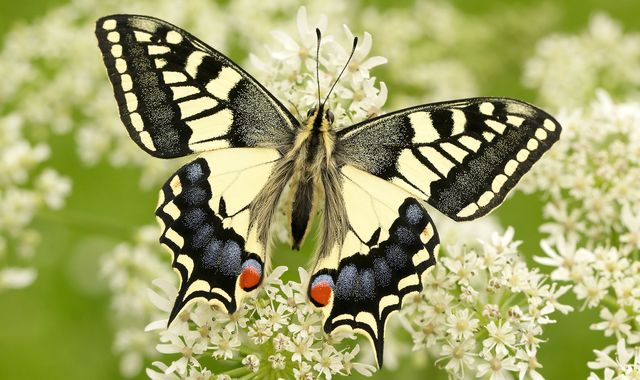On Air Now
Gold's All Day Hall of Fame with David Andrews 8am - 12pm
24 April 2024, 08:05 | Updated: 24 April 2024, 10:35

A "bug splat" survey of animals squashed on cars has found the number of flying insects has fallen by nearly four-fifths in two decades.
The citizen science survey, which asked people to count squashed insects on their number plates, found a fall of 78% across the UK between 2004 and 2023.
Kent Wildlife Trust and Buglife, who led the project, warned the "staggering" fall was a "red flag" for the state of nature in the UK that should not be ignored.
Insects pollinate crops, provide natural pest control, decompose waste, recycle nutrients and underpin food chains, providing food for larger animals like birds and fish.
"Without them, life on earth would simply collapse", the conservation groups said.
Their Bugs Matter survey is based on the "windscreen phenomenon" - inspired by drivers' anecdotes that they find fewer moths, flies, bees and beetles on their car windscreens than before.
There is growing evidence that significant drops in the number of insects in the UK and worldwide are due to loss of habitat, climate change, pollution and pesticide use, the groups said.
The UK is one of the most nature-depleted countries on Earth, and now has less than half the plant, animal and fungal life it once had.
To take part in the scheme, drivers had to clean their vehicle number plates before making an essential journey, record the route on their phones, and afterwards count the insects squashed on it using a supplied "splatometer grid".
The survey analysed 6,637 journeys last year, and found the sharpest fall in England of 83% since 2004.
Wales saw a 79% decrease and Scotland a 76% drop over the same period, while Northern Ireland - where only a small sample was taken - saw a 54% decline between 2021 and 2023.
Dr Lawrence Ball, from Kent Wildlife Trust, said: "These results are extremely concerning, particularly if insect splats serve as an accurate measure of insect populations.
"This is a red flag for the state of nature in the UK that shouldn't be ignored.
"A decrease in the number of insects sampled of more than 75% in less than two decades is really alarming, and we're seeing fewer insects being sampled every year."
Andrew Whitehouse, from Buglife, said: "The latest Bugs Matter data suggests that the abundance of flying insects in our countryside has dramatically fallen.
"The consequences are potentially far-reaching, not only impacting the health of the natural world, but affecting so many of the free services that nature provides for us."
(c) Sky News 2024: 'Bug splat' survey records 'staggering' drop in number of insects squashed on cars